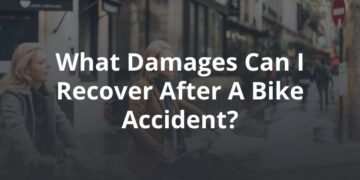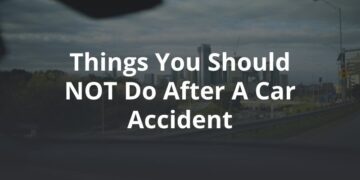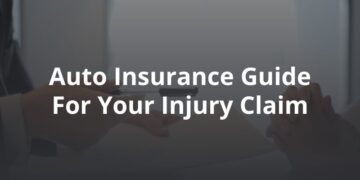Parking lots and garages are dangerous places — not just for drivers but for pedestrians as well. Pedestrians are one of the most vulnerable groups of road users. For instance, in 2016, there was an average one pedestrian killed every 1.5 hours in US traffic crashes.
Because parking lot accidents typically occur on private property, it is difficult to obtain exact statistics about how frequently pedestrians are struck by vehicles in these areas. However, experts agree that parking areas are some of the most dangerous spaces for accidents. Whether it’s a driver distracted by their phone or a confusing garage layout, there are many risk factors at play for pedestrians.
Determining fault in a pedestrian accident can be difficult when it occurs in a parking lot or garage. Most of the time, vehicle operators are responsible for car accidents with pedestrians. Also, pedestrians using parking garages might be lost, confused, or distracted, which can contribute to an accident. Often, however, poor signage, improper maintenance, or poor design can be a factor in a parking lot collision. When this occurs, the law may allow for compensation from the parking lot owner — at least in certain cases.
However, proving that these circumstances existed — and that they caused your accident — can be difficult. In order to recover damages from the owner or operator of a parking garage, you must be able to demonstrate that their negligence created a dangerous situation, and that the fault of the accident does not belong solely to the driver who hit you.
Understanding Premises Liability in Texas
In Texas, when you sustain an injury while on another person’s property and you believe it was the owner’s fault, you may be able to hold them responsible by making a premises liability claim. Premises liability is established by the following:
- The possessor must own, operate, maintain, or control the property. You cannot sue someone for premises liability who does not have control of the property.
- The injured person must have been “invited” onto the property for the mutual benefit of both parties. This is an unspoken agreement that goes beyond a literal invitation. It covers customers and potential customers of businesses. For example, if you are a shopper crossing the parking lot at an open shopping center, you are understood to have been invited.
- The injuries had to have been caused by “unreasonably dangerous conditions.” This refers to a danger that the owner knew about or should have known about, and that the invitee does not know about. In most circumstances, the person in control of the parking garage will have a legal obligation to inspect the premises for dangerous conditions and then either repair them or provide warnings.
What Does “Unreasonably Dangerous Conditions” Mean?
An unreasonably dangerous condition can be caused by the owner’s negligence or failure to warn invitees of something that was likely to cause harm. In a parking garage, this could take many forms. Here are some examples:
- Confusing signage. Because parking garages are confined spaces, clear communication is essential. There should be easy-to-read signage regarding one-way lanes, pedestrian walkways, exits and entrances, low clearances, ramps, and the like.
- Low visibility. This could include poor lighting and blind spots.
- Design defects. Extremely narrow lanes and too-sharp turns are good examples of design defects that could present dangers to drivers and pedestrians alike.
- State of disrepair. Owner negligence could result in deteriorating asphalt, downed signs or light poles, or poor preparation for inclement weather (for example, the asphalt could be slippery from snow or ice that has not been addressed).
Should I Hire an Austin Pedestrian Accident Injury Lawyer?
If you have been injured in a parking garage and you believe the owner may be responsible or partially responsible, a pedestrian accident injury lawyer can help you prove negligence and obtain compensation for your medical needs.
Premises liability cases are complex and require experience and expertise to navigate. Police do not always respond to parking garage accidents, and therefore you may not have the luxury of a thorough police report and documented evidence. Your lawyer may be able to obtain other evidence to bolster your case, such as security footage or accident records.
There is no one better suited to helping you understand your rights than an experienced and reputable Austin auto accident lawyer. FVF’s Austin pedestrian accident attorneys have helped hundreds of clients recover from both minor and catastrophic car accidents. It is our goal to be forthright about your options and guide you to decisions that will yield the best outcome for you. That guidance begins with a free, no-pressure case evaluation. Whether or not you decide to hire FVF, we intend for you to leave confident about your next steps. Contact us today to schedule your evaluation.





